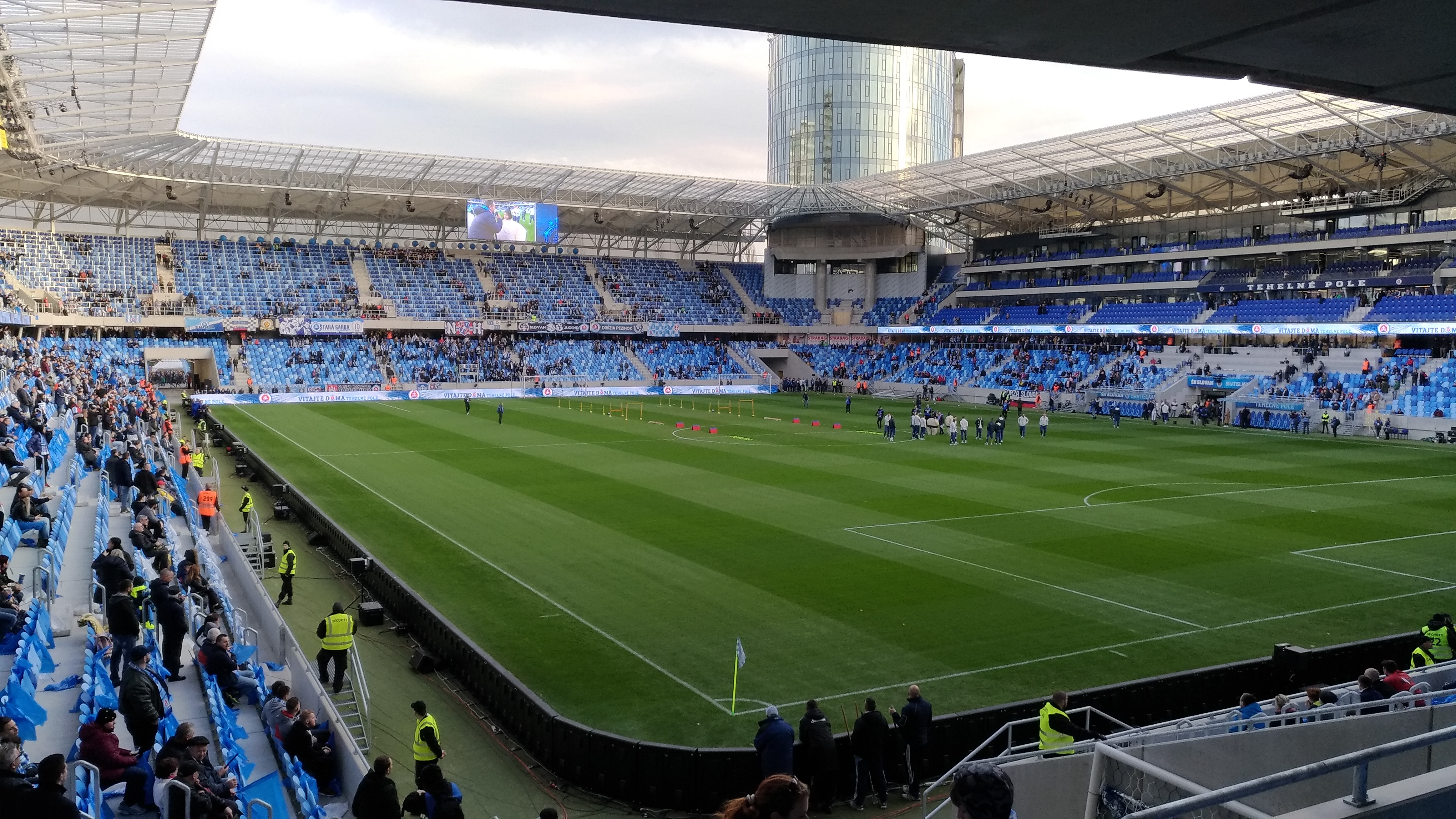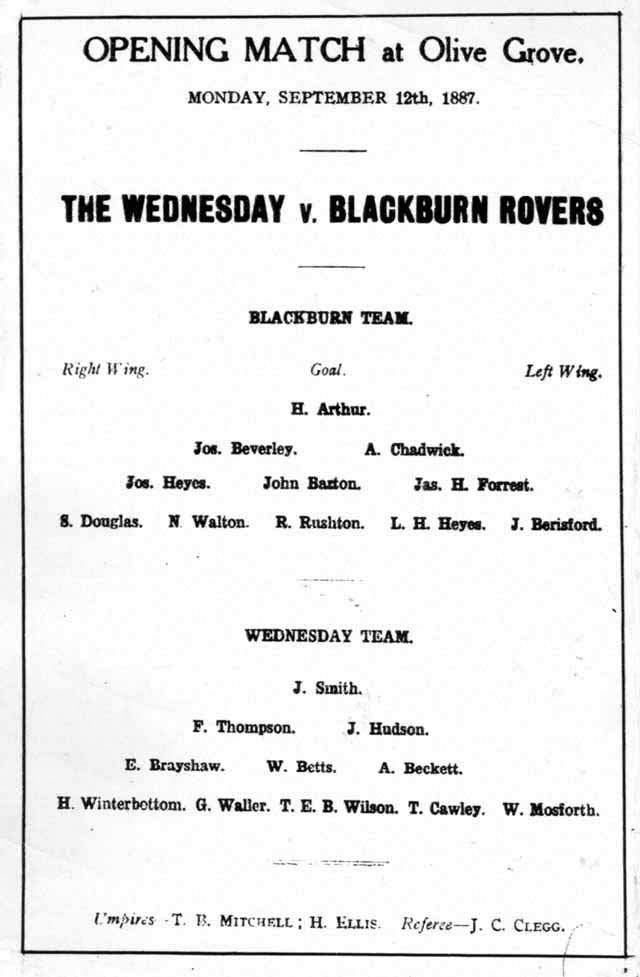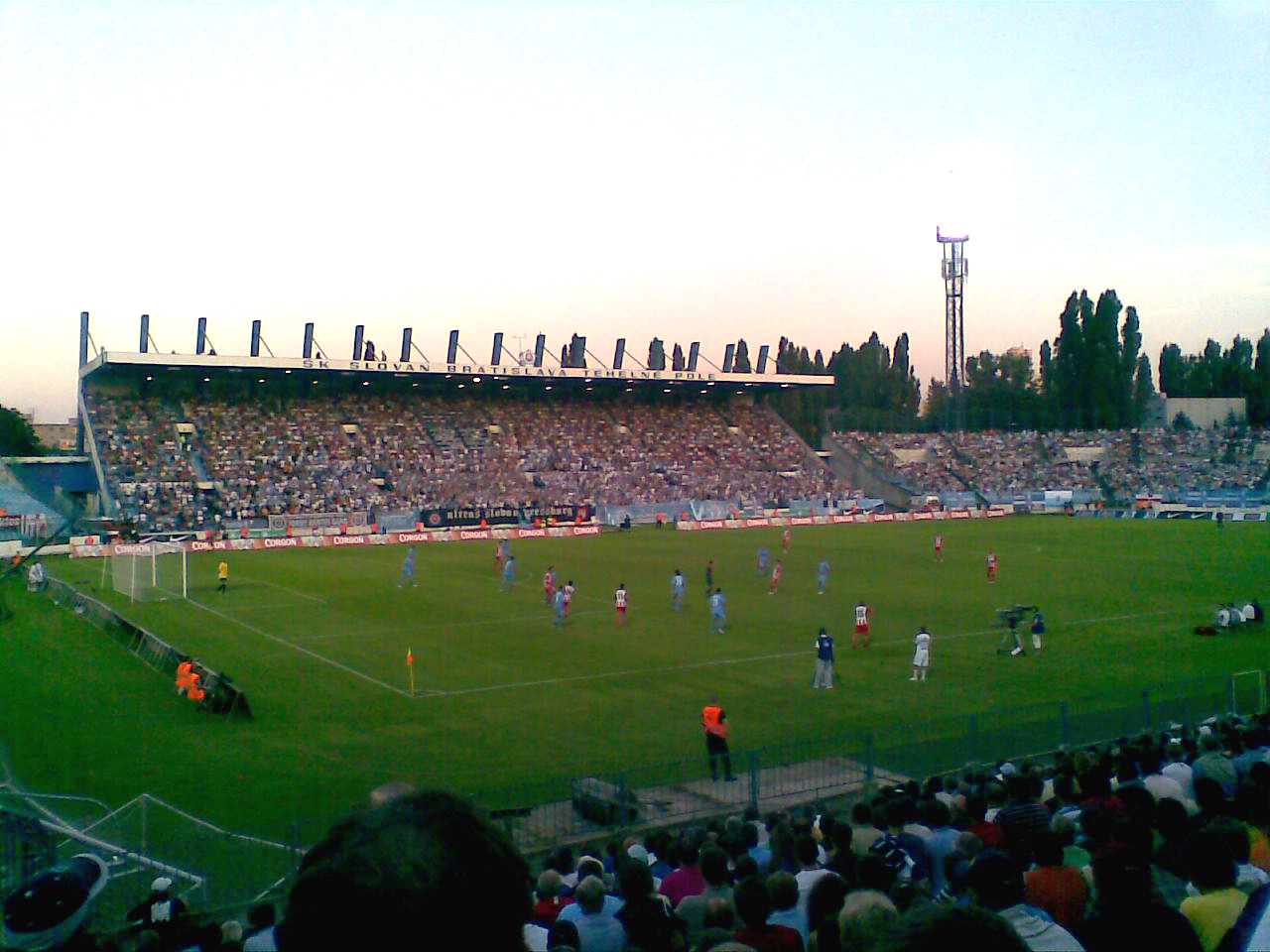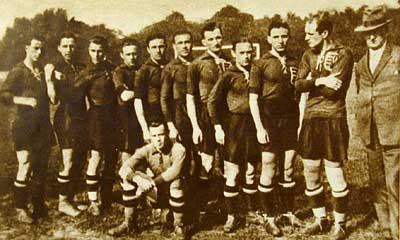|
ŠK Slovan Bratislava
ŠK Slovan Bratislava (, "Bratislava Slav") is a professional football club based in Bratislava, Slovakia, that plays in the Slovak Super Liga. Founded as I. ČSŠK Bratislava in 1919, the club changed its name to Slovan Bratislava in 1953. Slovan is the most successful team in Slovakia with the most titles in both league and cup in the country. Slovan Bratislava became the first and so far only club in Slovakia as well as former Czechoslovakia to win one of the European cup competitions, the Cup Winners' Cup when they defeated FC Barcelona in the final in Basel in 1969. The club also supplied seven players to the victorious UEFA Euro 1976 Czechoslovakia. History Historical names * I. ČSŠK Bratislava (1919–1939) * ŠK Bratislava (1939–1948) * ZSJ Sokol NV Bratislava (1948–1952) * DŠO Slovan ÚNV Bratislava (1953–1956) * TJ Slovan ÚNV Bratislava (1957–1961) * TJ Slovan Bratislava Dimitrov (1961) * TJ Slovan CHZJD Bratislava (1961–1990) * ŠK Slovan Bratisl ... [...More Info...] [...Related Items...] OR: [Wikipedia] [Google] [Baidu] |
Tehelné Pole
Tehelné pole or National football stadium ( sk, Národný futbalový štadión) is a multi-use stadium in Bratislava, Slovakia. It was completed in 2019 and is used for football (soccer), football matches, including the home matches of ŠK Slovan Bratislava and the Slovakia national football team. This project concerns mutual assistance between well-known Slovak entrepreneur Ivan Kmotrík as the owner of ŠK Slovan Bratislava and the Government of Slovakia. The stadium has a capacity of 22,500 spectators, and replaced the old Tehelné pole (1939), Tehelné pole stadium, which was demolished in summer 2013. Location Tehelné pole was a neighborhood in Bratislava, Slovakia, characterized by the presence of several sports facilities. Administratively, the neighborhood belongs to Nové Mesto, Bratislava, Nové Mesto borough, situated around 5 km north-east of the centre. The German and Hungarian names for this locality are ''Ziegelfeld'' and ''Téglamező''. Transport Tehelné ... [...More Info...] [...Related Items...] OR: [Wikipedia] [Google] [Baidu] |
Pavol Šoral
Pavol Šoral (18 January 1903 – 29 August 1977) was a former Slovak footballer who played for club side ŠK Slovan Bratislava. He was the first Slovak player to represent the Czechoslovakia national football team. He played club football for Slovan and his career ended following a leg injury in 1934. External links * 1903 births 1977 deaths Slovak footballers Czechoslovak footballers Czechoslovakia international footballers ŠK Slovan Bratislava players Association footballers not categorized by position {{Slovakia-footy-bio-stub ... [...More Info...] [...Related Items...] OR: [Wikipedia] [Google] [Baidu] |
Emil Pažický
Emil Pažický (14 October 1927 in Považský Chlmec – 21 November 2003 in Bratislava) was a Slovak football player, who played for Czechoslovakia, for whom he obtained 18 caps (seven goals). He was a participant at the 1954 FIFA World Cup, and played mostly for ŠK Žilina and Slovan Bratislava. In 1955 he became the top goalscorer of the Czechoslovak First League The Czechoslovak First League ( cs, 1. fotbalová liga, sk, 1. futbalová liga) was the premier football league in the Czechoslovakia from 1925 to 1993, with the exception of World War II. Czechoslovakia was occupied by German forces who formed ..., and he scored a total of 123 goals in the league. References External links * FIFA profile 1927 births 2003 deaths Slovak footballers Czechoslovak footballers 1954 FIFA World Cup players Czechoslovakia men's international footballers ŠK Slovan Bratislava players Dukla Prague footballers MŠK Žilina players Footballers from Žilina Men's asso ... [...More Info...] [...Related Items...] OR: [Wikipedia] [Google] [Baidu] |
Leopold Šťastný
Leopold Šťastný (23 May 191114 May 1996) was a Slovak football Football is a family of team sports that involve, to varying degrees, kicking a ball to score a goal. Unqualified, the word ''football'' normally means the form of football that is the most popular where the word is used. Sports commonly c ... player and coach. He played and coached for ŠK Slovan Bratislava. He played for both Czechoslovakia and Slovakia at international level. References External linksProfile 1911 births 1996 deaths Slovak footballers Czechoslovak footballers Czechoslovakia international footballers ŠK Slovan Bratislava players ŠK Slovan Bratislava managers Czechoslovak football managers Slovak football managers Austria national football team managers Slovakia international footballers Dual internationalists (football) Expatriate football managers in Austria FC Wacker Innsbruck managers Association football defenders People from Malacky District Sportspeopl ... [...More Info...] [...Related Items...] OR: [Wikipedia] [Google] [Baidu] |
Ferdinand Daučík
Ferdinand Daučík (also known as Fernando Daucik; 30 May 1910 – 14 November 1986) was a Slovak football player and manager. Daučík was the manager of several La Liga clubs, most notably Barcelona, Atlético Bilbao, Atlético Madrid and Real Zaragoza. During his career, he managed La Liga clubs in 488 matches, won three La Liga titles and won the Copa del Generalísimo on five occasions and won three La Liga/Copa doubles. He died in Alcalá de Henares. Playing career Daučík played as a defender for 1. ČsŠK Bratislava, Slavia Prague and the Czechoslovakia national team. He was only the third Slovak player ever to play for Czechoslovakia. He was part of the squad at both the 1934 and 1938 FIFA World Cups, and although he didn't play in the 1934 tournament, he was the only Slovak to play in the 1938 competition. Management career Daučík coached ŠK Bratislava between 1942 and 1946 and again in 1948. In 1948, he coached Czechoslovakia for two matches. He arrived in Spa ... [...More Info...] [...Related Items...] OR: [Wikipedia] [Google] [Baidu] |
Ferencvárosi TC
Ferencvárosi Torna Club, known as Ferencváros (), Fradi, or simply FTC, is a professional football club based in Ferencváros, Budapest, Hungary, that competes in the Nemzeti Bajnokság I, the top flight of Hungarian football. Ferencváros was founded in 1899 by Ferenc Springer and a group of local residents of Budapest's ninth district, Ferencváros. Ferencváros is best known internationally for winning the 1964–65 edition of the Inter-Cities Fairs Cup after defeating Juventus 1–0 in Turin in the final. Ferencváros also reached the final in the same competition in 1968, when they lost to Leeds United, as well as the final in the 1974–75 season of the European Cup Winners' Cup, losing to Dynamo Kyiv. The best-known part of the club is the well-supported men's football team – the most popular team in the country. The parent multisport club Ferencvárosi TC divisions include women's football, women's handball, men's futsal, men's ice hockey, men's handball, ... [...More Info...] [...Related Items...] OR: [Wikipedia] [Google] [Baidu] |
WM Formation
In association football, the formation of a team refers to the position players take in relation to each other on a pitch. As association football is a fluid and fast-moving game, a player's position (with the exception of the goalkeeper) in a formation does not define their role as tightly as that of rugby player, nor are there breaks in play where the players must line up in formation (as in gridiron football). A player's position in a formation typically defines whether a player has a mostly defensive or attacking role, and whether they tend to play centrally or towards one side of the pitch. Formations are described by three or more numbers in order to denote how many players are in each row of the formation, from the most defensive to the most advanced. For example, the "4–5–1" formation has four defenders, five midfielders, and a single forward. The choice of formation is normally made by a team's manager or head coach. Different formations can be used depending on wh ... [...More Info...] [...Related Items...] OR: [Wikipedia] [Google] [Baidu] |
Hertha Berlin
Hertha, Berliner Sport-Club e. V., commonly known as Hertha BSC (), and sometimes referred to as Hertha Berlin, Hertha BSC Berlin, or simply Hertha, is a German professional football club based in the locality of Westend (Berlin), Westend of the Boroughs and neighborhoods of Berlin, borough of Charlottenburg-Wilmersdorf of Berlin. Hertha BSC plays in the Bundesliga, the top tier of German football league system, German football. Hertha BSC was founded in 1892, and was a Founding Clubs of the DFB, founding member of the German Football Association in Leipzig in 1900. The team won the List of German football champions, German championship in 1930 German football championship, 1930 and 1931 German football championship, 1931. Since 1963, Hertha's stadium has been the Olympiastadion (Berlin), Olympiastadion. The club is known as ''Die Alte Dame'' in German, which translates to "The Old Lady". In 2002, the sports activities of the professional, amateur, and under-19 teams were separat ... [...More Info...] [...Related Items...] OR: [Wikipedia] [Google] [Baidu] |
Tehelné Pole (1939)
Tehelné pole was a neighborhood in Bratislava, Slovakia, characterized by the presence of several sports facilities. Administratively, the neighborhood belongs to Nové Mesto borough, situated around 5 km north-east of the centre. The German and Hungarian names for this locality are ''Ziegelfeld'' and ''Téglamező''. Football Most commonly, the name refers to the football stadium in this district which is the home ground of Slovan Bratislava and the regular home for the Slovakia national team. The stadium has a capacity of 30,085 spectators and is 105 m long and 68 m wide. It was built during the First Slovak Republic, when Nazi Germany occupied Petržalka in 1938 and Bratislava lost almost all of its sporting facilities.Lacika, "Bratislava", p. 195 (Slovak) The construction lasted from 1939 to 1944 and the stadium became the home ground for Slovan Bratislava. The stadium was officially opened in September 1940 with 25,000 places, and the first international match was ... [...More Info...] [...Related Items...] OR: [Wikipedia] [Google] [Baidu] |
Slovak Republic (1939–1945)
The (First) Slovak Republic ( sk, rváSlovenská republika), otherwise known as the Slovak State (), was a partially-recognized client state of Nazi Germany which existed between 14 March 1939 and 4 April 1945. The Slovak part of Czechoslovakia declared independence with German support one day before the German occupation of Bohemia and Moravia. The Slovak Republic controlled the majority of the territory of present-day Slovakia but without its current southern parts, which were ceded by Czechoslovakia to Hungary in 1938. It was the first time in history that Slovakia had been a formally independent state. A one-party state governed by the far-right Hlinka's Slovak People's Party, the Slovak Republic is primarily known for its collaboration with Nazi Germany, which included sending troops to the invasion of Poland in September 1939 and the invasion of the Soviet Union in 1941. In 1942, the country deported 58,000 Jews (two-thirds of the Slovak Jewish population) to German-o ... [...More Info...] [...Related Items...] OR: [Wikipedia] [Google] [Baidu] |
Munich Agreement
The Munich Agreement ( cs, Mnichovská dohoda; sk, Mníchovská dohoda; german: Münchner Abkommen) was an agreement concluded at Munich on 30 September 1938, by Nazi Germany, Germany, the United Kingdom, French Third Republic, France, and Fascist Italy (1922–1943), Italy. It provided "cession to Germany of the Sudeten German territory" of First Czechoslovak Republic, Czechoslovakia, despite the existence of a 1924 alliance agreement and 1925 military pact between France and the Czechoslovak Republic, for which it is also known as the Munich Betrayal (; ). Most of Europe celebrated the Munich agreement, which was presented as a way to prevent a major war on the continent. The four powers agreed to German occupation of Czechoslovakia, the German annexation of the Czechoslovak borderland areas named the Sudetenland, where more than three million people, mainly Sudeten Germans, ethnic Germans, lived. Adolf Hitler announced that it was his last territorial claim in Northern Europ ... [...More Info...] [...Related Items...] OR: [Wikipedia] [Google] [Baidu] |
József Braun
József Braun (also known as József Barna; 26 February 1901 – 20 February 1943) was a Hungarian Olympic footballer who played as a half back. Braun began his career in Hungary before finishing it in the American Soccer League. He earned 27 caps, scoring 11 goals, with the Hungarian national team. After retiring from playing, he coached for several years. Braun was killed in 1943 in a Nazi forced labor camp. Early and personal life He was Jewish. His nephew is András Kepes journalist, documentary filmmaker and author. Club career Braun played as youth with VAC Budapest. In 1916, he signed for MTK Budapest in the Hungarian League, where he played primarily as a right wing back. In 1919, he was selected as the Hungarian Player of the Year. During his years with MTK Budapest, Braun won nine Hungarian championships and two Hungarian cups. He retired from playing in 1925 after suffering from multiple injuries. In 1929, he moved to the United States, where he attempted a com ... [...More Info...] [...Related Items...] OR: [Wikipedia] [Google] [Baidu] |







